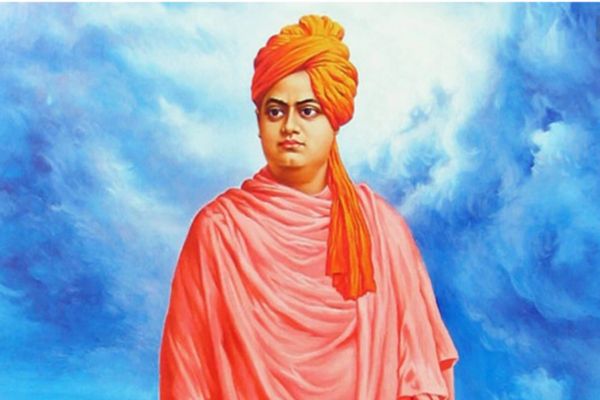
Swami Vivekananda: The Spiritual Leader Who Inspired the World
Swami Vivekananda is one of the most revered spiritual leaders in Indian history. Known for his profound teachings on spirituality, self-realization, and universal harmony, Swami Vivekananda inspired millions of people across the globe. His speeches, especially at the Parliament of the World’s Religions in Chicago in 1893, continue to resonate as a call for unity, tolerance, and the pursuit of higher knowledge.
In this post, we delve into Swami Vivekananda’s life, teachings, and enduring legacy. If you’re looking to explore his wisdom further, consider reading his books or attending seminars on his philosophy to gain deeper insights.
Who Was Swami Vivekananda?
Swami Vivekananda (1863-1902) was a spiritual leader, philosopher, and disciple of Sri Ramakrishna Paramahamsa. He was born as Narendranath Datta in a Bengali family and later embraced monastic life to dedicate himself to the service of humanity. He was instrumental in introducing Vedanta and Yoga to the Western world, emphasizing the idea that all religions lead to the same truth.
Swami Vivekananda’s life serves as an example of how one can combine spiritual insight with practical action. His teachings promote self-confidence, empowerment, and the pursuit of a purposeful life.
Swami Vivekananda’s Early Life and Education
Swami Vivekananda was born on January 12, 1863, in Kolkata (then Calcutta), India. From an early age, he exhibited a keen interest in spirituality, philosophy, and education. His intellectual brilliance and inquisitive nature made him a standout student.
Early Life and Education of Swami Vivekananda
| Aspect | Details |
|---|---|
| Birth Name | Narendranath Datta |
| Date of Birth | January 12, 1863 |
| Birthplace | Kolkata, West Bengal, India |
| Family Background | Father: Vishwanath Datta, Mother: Bhuvaneshwari Devi |
| Education | Presidency College, Scottish Church College |
| Interests | Philosophy, music, spirituality, and physical fitness |
Spiritual Transformation
Narendranath’s spiritual journey took a decisive turn when he met Sri Ramakrishna at the Dakshineswar Kali Temple. Sri Ramakrishna became his guru and taught him about the unity of all religions and the importance of self-realization.
After Sri Ramakrishna’s passing, Narendranath renounced worldly life and became Swami Vivekananda. He traveled extensively across India, witnessing the plight of the poor and the need for spiritual awakening. These experiences motivated him to serve humanity and spread the teachings of Vedanta.
Swami Vivekananda’s Achievements
Swami Vivekananda’s contributions to society and spirituality are monumental. His most notable achievement was his iconic speech at the Parliament of the World’s Religions in Chicago in 1893. His address began with the famous words, “Sisters and Brothers of America,” which earned him a standing ovation.
Major Achievements of Swami Vivekananda
| Year | Achievement |
|---|---|
| 1886 | Took formal monastic vows after Sri Ramakrishna’s passing. |
| 1893 | Represented India at the Parliament of the World’s Religions in Chicago. |
| 1897 | Established the Ramakrishna Mission to serve humanity. |
| 1899-1900 | Second trip to the West to spread Vedantic philosophy. |
| 1902 | Passed away at the age of 39 in Belur Math, West Bengal. |
Teachings of Swami Vivekananda
Swami Vivekananda’s teachings are timeless and universal. They emphasize the importance of self-confidence, spiritual growth, and service to humanity. Some of his core teachings include:
- Universal Brotherhood: He advocated for the unity of all religions and the idea that all paths lead to the same truth.
- Self-Reliance: He encouraged individuals to believe in themselves and take responsibility for their lives.
- Service to Humanity: He emphasized the importance of serving the underprivileged and uplifting society.
- Spiritual Awakening: Swami Vivekananda taught that spiritual realization is the ultimate goal of life.
To explore his teachings further, consider reading Swami Vivekananda’s Complete Works or subscribing to online courses on Vedanta and spirituality.
Legacy of Swami Vivekananda
Swami Vivekananda’s legacy is enduring and multifaceted. His efforts led to the global recognition of Indian spirituality and philosophy. He inspired movements like the Ramakrishna Mission, which continues to serve humanity through education, healthcare, and spiritual guidance.
Swami Vivekananda’s Legacy
| Aspect | Details |
|---|---|
| Ramakrishna Mission | Founded in 1897 to promote education, healthcare, and social welfare. |
| Inspiration | Inspired leaders like Mahatma Gandhi and Martin Luther King Jr. |
| National Youth Day | His birth anniversary, January 12, is celebrated as National Youth Day in India. |
| Global Recognition | Popularized Yoga and Vedanta in the Western world. |
| Institutions | Numerous schools, colleges, and research centers are named after him. |
Interesting Facts About Swami Vivekananda
- Swami Vivekananda was a voracious reader and could memorize entire books in a single reading.
- He had an extraordinary memory and often amazed people with his quick recall.
- Despite his intense spiritual practices, he was a strong advocate of physical fitness and believed in the phrase, “A strong mind in a strong body.”
- He predicted his own death, stating that he would not live beyond 40 years. He passed away at the age of 39.
Books by and About Swami Vivekananda
Swami Vivekananda’s teachings and speeches are compiled in several books. Here are some must-reads:
- The Complete Works of Swami Vivekananda
A compilation of his speeches, letters, and essays. - Raja Yoga
A guide to the philosophy and practice of Yoga. - Karma Yoga
Explores the concept of selfless action and duty. - Vedanta: Voice of Freedom
A collection of his teachings on Vedanta philosophy. - Meditation and Its Methods
Practical guidance on meditation and spiritual growth.
Swami Vivekananda’s Personal Life
Swami Vivekananda led a life of celibacy and dedication to spiritual and humanitarian causes. He did not marry or have children, as he believed his life’s purpose was to serve humanity and realize the highest truths of existence.
Despite his monastic life, Swami Vivekananda was deeply empathetic and connected with people from all walks of life. His teachings were not limited to spiritual seekers but were intended for anyone striving to lead a meaningful life.
Swami Vivekananda Quotes
| Quote | Theme/Meaning |
|---|---|
| “Arise, awake, and stop not till the goal is reached.” | Perseverance and determination in achieving goals. |
| “You cannot believe in God until you believe in yourself.” | Importance of self-confidence as the foundation for faith and success. |
| “Take risks in your life. If you win, you can lead. If you lose, you can guide.” | Encourages embracing risks and viewing failures as learning opportunities. |
| “The world is the great gymnasium where we come to make ourselves strong.” | Life’s challenges help build resilience and inner strength. |
| “In a day, when you don’t come across any problems, you can be sure that you are traveling on the wrong path.” | Challenges are essential for personal growth and progress. |
| “The greatest religion is to be true to your own nature. Have faith in yourselves.” | Advocates authenticity and self-belief as the highest virtues. |
| “All the powers in the universe are already ours. It is we who have put our hands before our eyes and cry that it is dark.” | Highlights the infinite potential within every individual. |
| “We are what our thoughts have made us; so take care about what you think. Words are secondary. Thoughts live; they travel far.” | Emphasizes the power of positive thinking and mental discipline. |
| “Do one thing at a time, and while doing it, put your whole soul into it to the exclusion of all else.” | Importance of focus and dedication in achieving success. |
| “Strength is life, weakness is death. Expansion is life, contraction is death. Love is life, hatred is death.” | Advocates strength, growth, and love as the principles of life. |
| “Whatever you think, that you will be. If you think yourselves weak, weak you will be; if you think yourselves strong, strong you will be.” | Encourages empowering thoughts and self-perception. |
| “The fire that warms us can also consume us; it is not the fault of the fire.” | A reminder to use power and resources wisely. |
| “Truth can be stated in a thousand different ways, yet each one can be true.” | Reflects the universal nature of truth. |
| “Comfort is no test of truth. Truth is often far from being comfortable.” | Encourages seeking truth even if it is inconvenient or challenging. |
| “The more we come out and do good to others, the more our hearts will be purified, and God will be in them.” | Stresses the importance of selfless service to humanity. |
| “Be a hero. Always say, ‘I have no fear.’ Tell this to everyone—’Have no fear.'” | Promotes courage and fearlessness in all aspects of life. |
| “Stand up, be bold, and take the blame on your own shoulders. Do not go about throwing mud at others; for all the faults you suffer from, you are the sole and only cause.” | Advocates accountability and responsibility. |
| “The only way to bring a change is to take responsibility for it.” | Highlights the power of individual responsibility in driving change. |
| “Be free; hope for nothing from anyone. I am sure if you look back, you will find that you were always being helped.” | Teaches self-reliance and gratitude for life’s support systems. |
| “Education is the manifestation of the perfection already in man.” | Defines education as the process of self-discovery and self-improvement. |
The Untimely Demise of Swami Vivekananda
Swami Vivekananda passed away on July 4, 1902, at the young age of 39. His death occurred at Belur Math, the headquarters of the Ramakrishna Mission that he founded. It is widely believed that the cause of his death was due to a ruptured blood vessel in the brain, leading to a fatal hemorrhage. Some accounts also suggest that his deteriorating health was the result of overwork and stress, as he tirelessly dedicated himself to spreading spiritual knowledge and serving humanity.
Despite his untimely demise, Swami Vivekananda left behind a legacy that continues to inspire and guide millions across the globe. His profound teachings and vision of universal brotherhood remain as relevant today as they were during his lifetime.
Why Swami Vivekananda Matters Today
Swami Vivekananda’s teachings are as relevant today as they were over a century ago. His emphasis on self-confidence, spiritual growth, and social service provides a roadmap for leading a fulfilling and purposeful life. For children and youth, his message of courage, self-reliance, and faith in oneself is particularly inspiring.
If you’re looking to transform your life or find a deeper sense of purpose, delve into Swami Vivekananda’s works or explore resources inspired by his philosophy. His life and teachings continue to inspire generations to dream big, work hard, and serve humanity with compassion.
Affiliate Disclosure: This post contains affiliate links. If you click and purchase through these links, we may earn a small commission at no extra cost to you. Thank you for supporting our blog!



